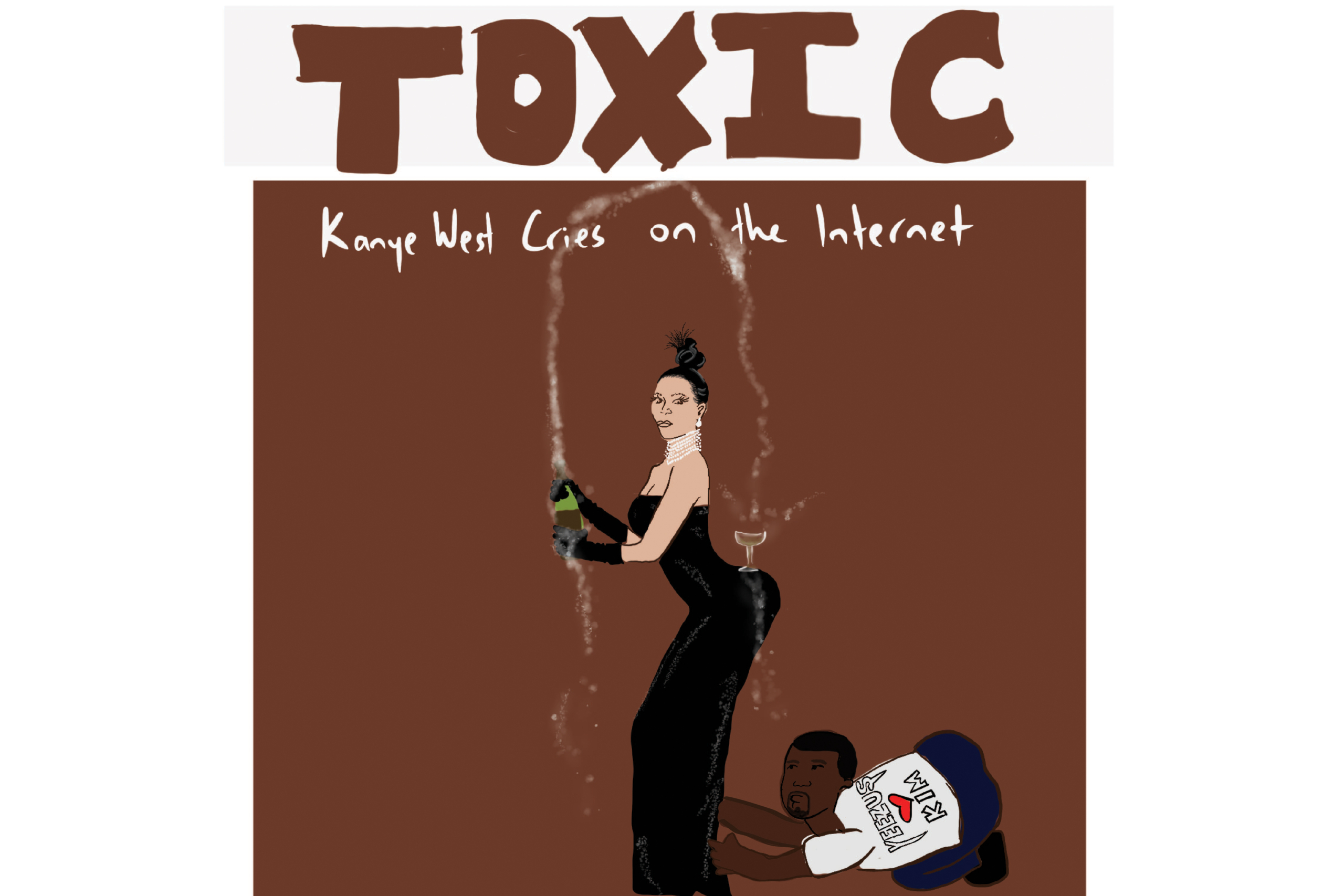We live in an age of public figures: people who have a considerable amount of popularity and can influence society at large. Popularity is a privilege. People pay more attention to you, throw opportunities at you, and sometimes, you can step on other people’s toes without consequence.
Kanye West — now known as just ‘Ye’ — is one of these public figures. It’s no secret that he has been one of the most popular artists of the last decade.
Throughout the month of February, West documented his feelings about his ongoing divorce with Kim Kardashian in a series of Instagram posts. In them, he publicized interactions he’s had with his family, friends, and peers.
The world isn’t exactly cheering Ye on. As he infringes on the privacy of his ex-wife and targets harassment toward her new boyfriend, Pete Davidson, the public is having a hard time taking his side. “At first it was funny. Now it’s becoming lame… Anyone condoning this type of behavior needs help,” said one Twitter user.
Despite the pushback, Ye has been able to excuse himself from criticism. He shifts the conversation away from his behavior by using his Instagram to promote his music. Since the first post regarding his ex-wife on February 4, Ye has released his long-anticipated Netflix documentary jeen-yuhs and promoted his upcoming album Donda 2.
Ye is leveraging his popularity to shift attention. By simply posting a 20-second advert for his album, he can wash away criticism of his character with excitement about his art. By having his personal life and music intertwined on social media, Ye makes it hard to separate the art from the artist. His actions become a feature of the Kanye West brand, not a bug.
He has threatened physical violence against Davidson before: “God saved me from that crash / Just so I can beat Pete Davidson’s ass.” Kim has voiced her fear of this violence before: “U are creating a dangerous and scary environment and someone will hurt Pete and this will all be your fault.”
So what happens if Ye’s Instagram behavior is normalized? Unacceptable actions may become acceptable in the eyes of the public, emboldening those who would take it further than Ye ever has.
As much as Ye’s behavior is obnoxious, he is capable of dialling it back. Ye has deleted most of his posts about Kim and has promised not to harm Pete. However, stalkers and abusers invigorated by Ye’s recent antics won’t have the same restraint.
A 2014 report produced by the Canadian Centre for Justice Statistics found that 28 per cent of Canadians are victims of stalking by unwanted text or other online communication. Victims reported that these texts and communications have made them fear for their own safety or the safety of someone they knew.
Ye has since said that he is “taking accountability” and that he is “learning in real time.” Even so, his actions can still normalize the behavior of stalkers and abusive partners. Not everybody is Kim Kardashian — a celebrity with money and a substantial following who has the resources to deal with the harassment.
Of all Canadian stalking victims, 48 per cent are 15–34 years old. Normalizing digital harassment is especially problematic when we consider that younger people are more likely to be on social media. During the pandemic, U of T students have been online constantly. It seems like digital harassment will grow as social media becomes an even more popular place for students to interact.
Under the already stressful conditions of university life, it can be especially hard to deal with external harassment. “I was harassed, stalked, and yelled at by random crackheads on the TTC … I feel absolutely defeated,” wrote an anonymous user on the Instagram page ‘uoftears,’ which hosts anonymous confessions by U of T students. This person is far from alone in being a victim of harassment and stalking — but with over 7,000 posts on the page, this individual user’s concerns are eventually swallowed up by the masses.
In an online climate where fans will listen to anything that celebrities say, victims of harassment may find before them thousands of people minimizing what they went through. What a public figure says matters. Celebrities can sway the thoughts, opinions, and attitudes of our society. A lack of concern for how they conduct themselves in public can cause very real harm.
There are no checks and balances, no one who oversees those with popularity. As Ye continues to enjoy his success — a recent livestreamed performance of his reached record-breaking numbers — it increasingly seems as though there is no accountability for public figures.
As students, we should let nothing a celebrity says fly without investigation. Careful thought is the antidote to the spectacle that celebrities are incentivized to partake in. Don’t contribute to the monolith of blind fandom behind them. Learn how to view the world with a critical eye, valuing the opinion of an artist only when it’s appropriate.
While artists like Ye may have interesting perspectives, their celebrity limits their commentary just as much as it enriches it. Popularity isn’t everything — how you use it is a different story.
Khishore Shivakumar is a first-year social sciences student at Woodsworth College.


